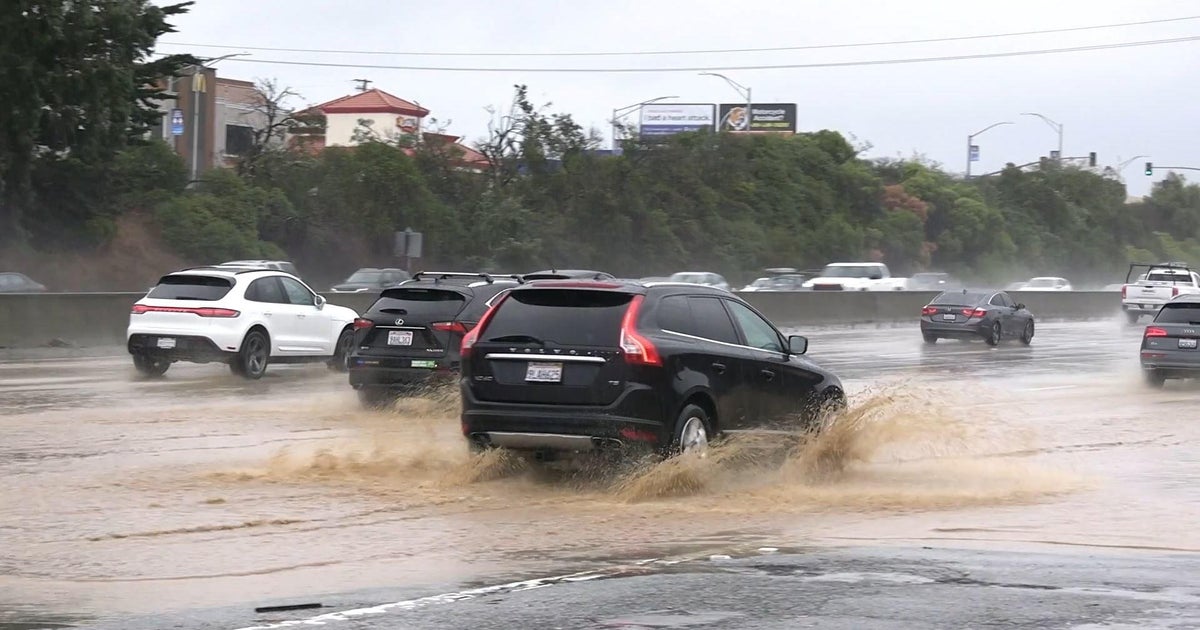How To Stretch Your Mileage As Bay Area Gas Prices Continue To Rise
PLEASANTON (KPIX) -- While drivers can't control rising prices at the pump as gas prices soar amid the Russian invasion of Ukraine, experts offer tips to help maximize fuel efficiency.
Watching your speed is important. As fuel economy peaks at 55 miles per hour, so if you're going 75 mph, you are getting 6 to 7 miles less per gallon.
"Good tires, do your tune ups when you are supposed to, spark plugs and make sure it's running efficiently," said Josh Cherry, who owns the Big O Tires in Pleasanton.
Cherry showed an example of a bad tire, which had low tread.
"So that tire would not be efficient because it is so choppy, the rolling resistance is higher so that is going to cost you mileage," he said.
Experts also suggest keeping tabs on tire pressure. Underinflated tires reduce fuel economy and are dangerous.
Kim Johnson with AAMCO transmissions offered additional tips.
"If you are checking your tires regularly how much can you save? If they're underinflated it's about 3% per tire. It will change your gas mileage a lot," Johnson told KPIX 5.
Johnson also said aggressive driving lowers your gas mileage by 15 to 30 percent at highway speeds, and 10 to 40 percent in stop-and-go traffic.
"All those things add up. The more you can eliminate that kind of stuff and keep good driving habits and keep an eye on your tire pressure, make sure you check your engine light is not and get your fluids changed frequently. Those are things that will give you the best performance and do the best you can with your fuel economy," she said.
Johnson also said it might be time for drivers to consider ridesharing or carpooling to split gas costs among multiple passengers.
AAA provided some additional tips:
- If you use premium unleaded fuel, make sure it is required for your vehicle, not just recommended. The Auto Club's Automotive Research Center found that vehicles with recommended premium fuel performed safely with regular unleaded gasoline.
- Make sure your tires are properly maintained and inflated to the correct level.
- Maintain your car according to the manufacturer's recommendations. Regular service will ensure optimum fuel economy.
- Avoid "jackrabbit" starts and hard accelerations. These actions greatly increase fuel consumption.
- Slow down and drive the speed limit. Fuel economy peaks around 50 mph on most cars, then drops off as speed increases. Reducing freeway speeds by 5 to 10 mph can increase fuel economy by as much as 14%.
- Use cruise control on the highway to help maintain a constant speed and save fuel. However, never use cruise control on slippery roads because you could lose control of the vehicle.
- Minimize your use of air conditioning.
- Avoid extended idling to warm up the engine, even in colder temperatures. It's unnecessary and wastes fuel.
- Remove unnecessary and heavy items from your car.
- Minimize your use of roof racks and remove special carriers when not in use.



